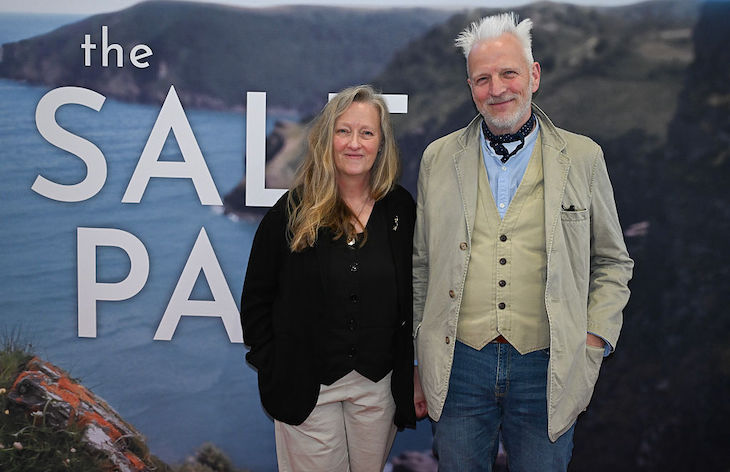It looks set to be a happy April for MPs who are in line for a 2.8 per cent pay rise, lifting their salaries to £93,904. Your reaction to that figure likely depends on how much you earn. So does mine – and since I’m about to argue that MPs are underpaid, it’s only fair I give a sense of my own finances. I’ll stay schtum about my books and biotech startup, but I’ll admit – no boasting intended – that this piece will net me, after tax, somewhere in the mid to high two figures.
Can it be right that we pay our MPs significantly less than hospital consultants?
As my byline makes clear, I’m also a consultant physician. Our salaries, like those of MPs, are public information. A basic full-time job – extras aside, although they’re the norm – pays £105,504 in a consultant’s first year; £139,882 after fourteen more. Clearly, I’m not taking time out from medicine to write this piece for the money – but it’s a nice point to question whether this makes my motives more suspicious, not less.
Can it be right that we pay our MPs – a select band, entrusted with the power of running our country – significantly less than we pay hospital consultants, of whom we have a hundred times more? Or less than double what we pay a train driver?
Anthony Trollope’s The Way We Live Now tells of the character Augustus Melmotte achieving the author’s own ambition of entering parliament. Trollope had no doubt about parliament’s grandeur – nor about it being peopled by those who were flawed but still among the best of us. ‘Ignorant as he was,’ Trollope wrote of Melmotte’s election as an MP, ‘he understood the magnitude of the achievement.’
In 1875, when Trollope’s book was published, MPs got nothing, and were admired. Today we pay them and we hold them in contempt. The modern system began in 1911, with a yearly stipend of nearly six times the average wage. For the vast majority of MPs, this was still in addition to being independently wealthy. Today our parliamentarians earn about two and half times the average, and their salaries are often begrudged.
Perhaps their pay is a trivial issue, but that is no excuse for us dealing with it so unseriously. We could randomise different payments for different constituencies, then, over decades, make consensus judgements about the quality of the parliamentary careers in each. All that’s needed is the humility to admit doubt, the willingness to pursue a long-term solution, and the hope of finding an agreed way to judge the merit of a member’s working life.
This is a fantasy, clearly. But we could at least talk of the issue as though we meant to think about it properly. Lessons from other countries are not easily transferable. The Singaporean prime minister Lee Kuan Yew famously decreed that politicians in the country were going to be paid well in order to reduce corruption: those who dealt with billions should at least be able to afford a decent house in their own capital. Maybe the sense that Yew was prepared to execute people helped. A friend in Kenya suggested a similar strategy failed there because MPs were more worried about unofficial executions if they balked at corruption. Context matters.
Jose Mujica, the Uruguayan president, gave most of his salary away and governed decently as well as modestly. Admirable – but not a recipe for others. No level of wealth, in childhood or as an MP, predicts an ability to see the world as others do, and govern intelligently in their wider interests.
Good representation is not a simple function of parliamentary diversity but the result of its members’ imaginations. Winston Churchill stood for the ordinary people of Britain, though he never lived as one. Denis Healey did – but still saw the value of Old Etonians. Nothing obvious in Enoch Powell’s life gave rise to his efforts to improve the care of NHS psychiatric patients, or defend the rights of Mau Mau rebels. Empathy and imagination, not cash or class, make MPs effective. Sympathy counts for more than experience, and wealth is no guide to good sense.
Would paying MPs the minimum wage attract better candidates? Would tripling their salary attract worse? For doctors, I rather suspect it would, but I doubt an annual salary of a quarter of a million would be likely to worsen the parliamentary pool, and paying MPs that much wouldn’t dent the national budget. It would be worth the money – not to compensate them for the job’s miseries, but to reduce temptation born of need (if not of greed), and to attract greater talent. A plentiful amount of money, perhaps, protects us from the idealists – the lunatics of one idea – who so often prove more dangerous than those with the humanity to keep half an eye on their own interests. If MPs were paid worse, for example, Denis Healey might have done something else – there was so much he was capable of – but Ed Miliband would never have hesitated.
Would Labour MPs scramble in such an unseemly manner for free clothes if they were paid a third of a million? Or would they simply look across the aisle and raise their sights to baronetcies and greater riches, like Melmotte and so many Tories?
We should treat our MPs better – and reward them properly. It is dangerous to pay MPs far less than those they mix with at the top of society – a good recipe for ensuring they must either be independently wealthy to start with, or become so much on the make as to undermine their effectiveness and their honesty. Nor do we want MPs, I suspect, for whom a wage of £93,000 a year represents riches they cannot otherwise dream of earning.







Comments